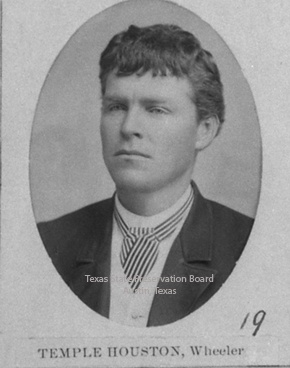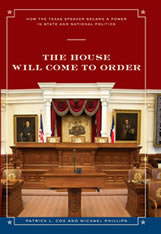In February, we wrote about how
states are considering Medicaid expansion under the Patient Protection and Affordable Care Act. We continue this discussion by highlighting
bills filed during the 83rd Regular Session that relate to Medicaid expansion, as well several
reports published recently that argue for or against Medicaid expansion in Texas.
In addition to the bills listed below, the Senate's budget bill (SB 1), contains a rider regarding Medicaid expansion:
Relating to participation by political subdivisions in federal healthcare programs.
HB 593 by Reps. Elliott Naishtat & Garnet Coleman
Relating to the expansion of eligibility for medical assistance to certain persons under the federal Patient Protection and Affordable Care Act.
Relating to the expansion of eligibility for medical assistance to certain persons under the federal Patient Protection and Affordable Care Act.
Relating to the expansion of eligibility for Medicaid in certain counties under the federal Patient Protection and Affordable Care Act.
Relating to expanding eligibility for medical assistance to certain persons under the federal Patient Protection and Affordable Care Act.
Relating to expanding eligibility for medical assistance to certain persons under the federal Patient Protection and Affordable Care Act and ensuring the provision of quality care under and the effectiveness of the medical assistance program.
HB 3266 by Rep. Ruth Jones McClendon
Relating to expanding eligibility for medical assistance to certain persons under the federal Patient Protection and Affordable Care Act and ensuring the provision of quality care under and the effectiveness of the medical assistance program.
Relating to expanding eligibility for medical assistance to certain persons under the federal Patient Protection and Affordable Care Act and ensuring the provision of quality care under and the effectiveness of the medical assistance program.
Relating to expanding eligibility for medical assistance to certain persons under the federal Patient Protection and Affordable Care Act and ensuring the provision of quality care under and the effectiveness of the medical assistance program.
Relating to expanding eligibility for medical assistance to certain persons under the federal Patient Protection and Affordable Care Act and ensuring the provision of quality care under and the effectiveness of the medical assistance program.
HB 3722 by Rep. Trey Martinez Fischer
Relating to expanding eligibility for benefits under the Medicaid program and transitioning the delivery of benefits under the Medicaid program from delivery through a managed care model or arrangement to delivery through an integrated and coordinated health care delivery system.
HB 3791 by Reps. John Zerwas & J.D. Sheffield
Relating to the creation of a "Texas" solution to issues related to Medicaid, including flexibility in the administration of the Medicaid program, tailored to the needs of the state.
Relating to expanding eligibility for medical assistance to certain persons under the federal Patient Protection and Affordable Care Act and ensuring the provision of quality care under and the effectiveness of the medical assistance program.
Proposing a constitutional amendment requiring the state to expand eligibility for the Medicaid program to certain persons.
SB 455 by Sen. José R. Rodríguez
Relating to the expansion of eligibility for medical assistance to certain persons under the federal Patient Protection and Affordable Care Act and the application and eligibility determination processes for medical assistance and other programs.
Relating to the expansion of eligibility for medical assistance to certain persons under the federal Patient Protection and Affordable Care Act.
Relating to expanding eligibility for medical assistance to certain persons under the federal Patient Protection and Affordable Care Act and ensuring the provision of quality care under and the effectiveness of the medical assistance program.
Relating to flexibility in the administration of the Medicaid program, a block grant funding approach to Medicaid expansion, and the establishment of a health benefit exchange tailored to the needs of the state.
Relating to the cost effects of expanding eligibility for medical assistance under the federal Patient Protection and Affordable Care Act.
Relating to the expansion of eligibility for medical assistance to certain persons under the federal Patient Protection and Affordable Care Act and funding of that expansion.
SJR 8 by Sen. Rodney Ellis
Proposing a constitutional amendment requiring the state to expand eligibility for the Medicaid program to certain persons.
SJR 61 by Sen. Charles Schwertner
Proposing a constitutional amendment requiring the reduction of amounts paid by Texans to provide health care to the uninsured if Medicaid eligibility is expanded in accordance with the federal Patient Protection and Affordable Care Act; requiring hospital district tax rate reductions.
Viewpoints on Medicaid expansion in Texas:
Over the summer, Governor Rick Perry expressed his
opposition to Medicaid expansion in Texas. Local organizations and individuals have also published their viewpoints about this issue. Below you will find a selection of these reports, organized alphabetically by title.
Back to top
This entry was posted on March 15, 2013 at 11:54 AM and has received 5712 views.
Print this entry.









